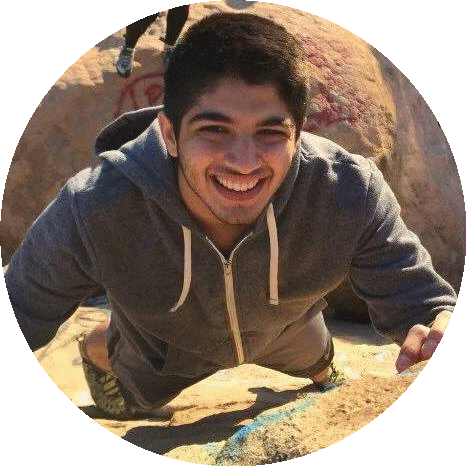
Home
About
Work
Projects
Publications
Resume
Contact

Hello! I'm Gautam Jethwani and I'm from Kuala Lumpur, Malaysia. I'm a senior at the University of Southern California studying Computer Science with a focus on full stack web development. I'm passionate about solving everyday problems with technology. When I'm not coding, I'm either rock climbing or discussing global political landscapes.
I've worked in Los Angeles, Singapore and Kuala Lumpur and I enjoy being an active member in the USC community.
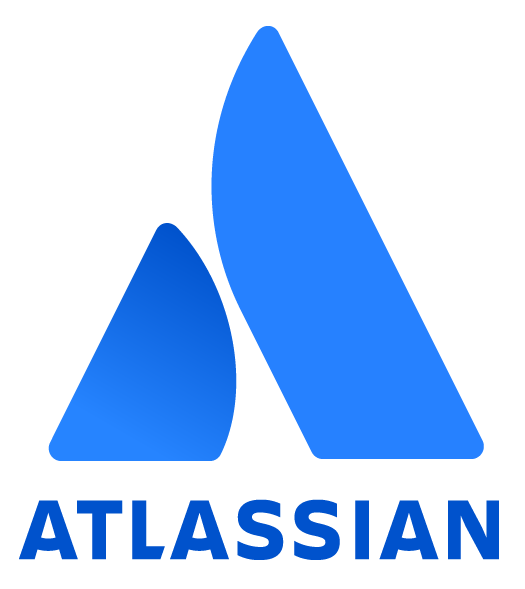
I spent the summer of 2020 as a software engineering intern on the Confluence Analytics team. This team maintains a feature for Confluence Cloud that shows user facing analytics for Confluence content. My job was to make server-side optimizations to reduce latency and I ended up reducing the p99 latency of slow requests from 1m to 11s. I did this by performing database query optimizations and I also extensively researched and ruled out other avenues for increasing speed. I also an a script on the production database to safely remove 25% of unnecessary data. Because this was a large, high-risk DELETE operation (no one on the team had ever run a DELETE query on the production database), I got valuable experience with external monitoring and logging services such as SignalFx and Splunk to ensure that the job ran without a hitch.

I founded an e-commerce website in Kuala Lumpur, Malaysia focusing on watches and timepieces. This feat involved co-ordinating and leading developers, designers, investors and suppliers. I also made critical choices about technological stack and which technologies to use

I've worked at the popular e-hailing app twice. During my first tenure there, I was a software engineering intern on the
Product Insights
and Experimentation team. This team was developed a platform that let any team at Grab conduct A/B testing
on any of their markets for any new features, providing data about the experiment after it was conducted. I developed
a feature for the platform that allowed users to use Javascript to determine variable values rather than using static
values.
The second time I worked there, I was a software engineering intern on the Transport Core team. I worked on a key
service that managed operational configurations for the app. Previously, users could only interact with the service through
a Slackbot, but I helped build a portal for the service that provided an intuitive UI.
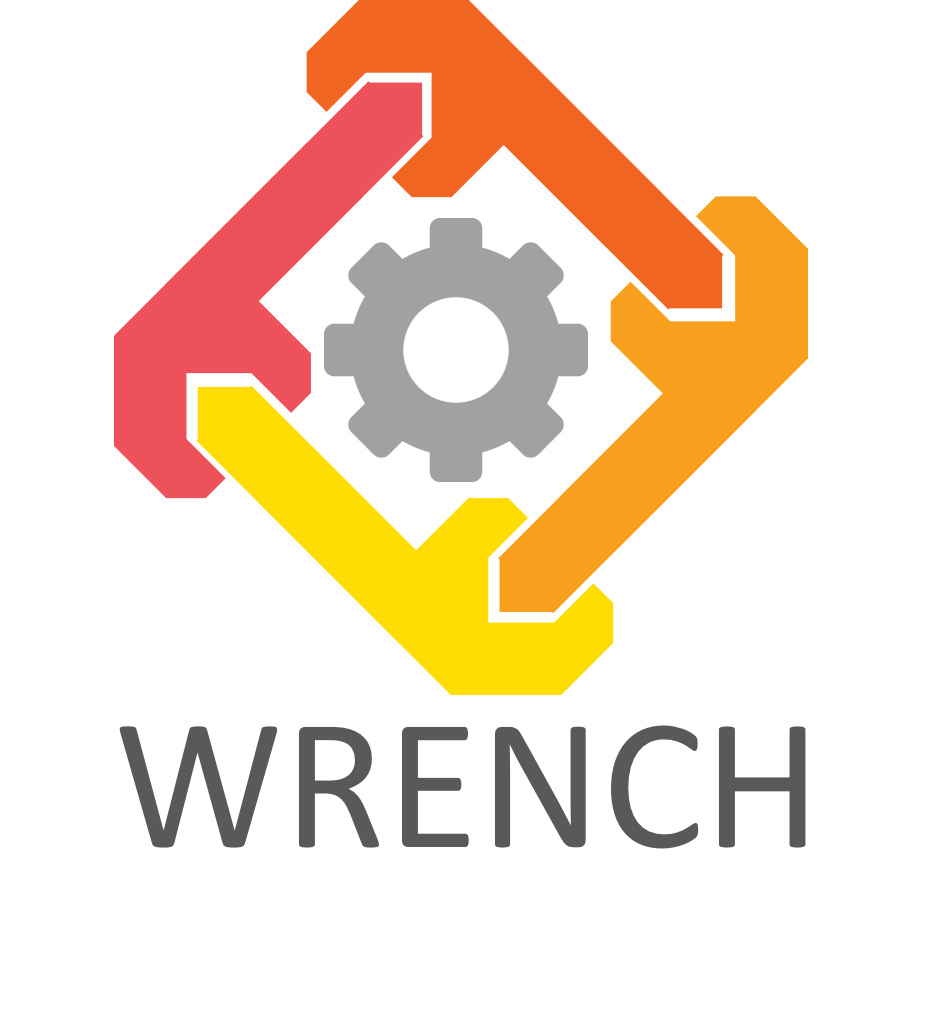
I'm currently a student worker at WRENCH project, a Workflow Management System Simulation Workbench. The Workbench spits out data in a messy JSON format so my responsibility was to develop a dashboard using D3.js that could take this JSON data and generate some readable graphs from it. The code for the dashboard can be found here.
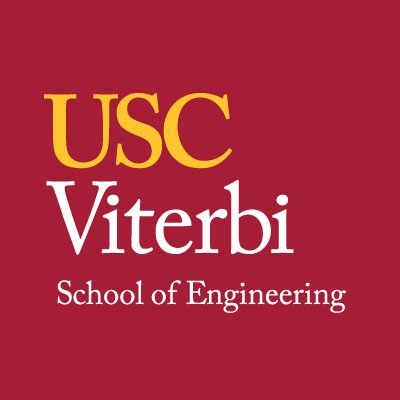
I was a teaching assistant for two popular USC classes: ITP104 (Introduction to Web Publishing) with Nayeon Kim and ITP365 (Managing Data in C++). My responsibilities included being present in lectures to answer questions, grading homework and exams and holding office hours.
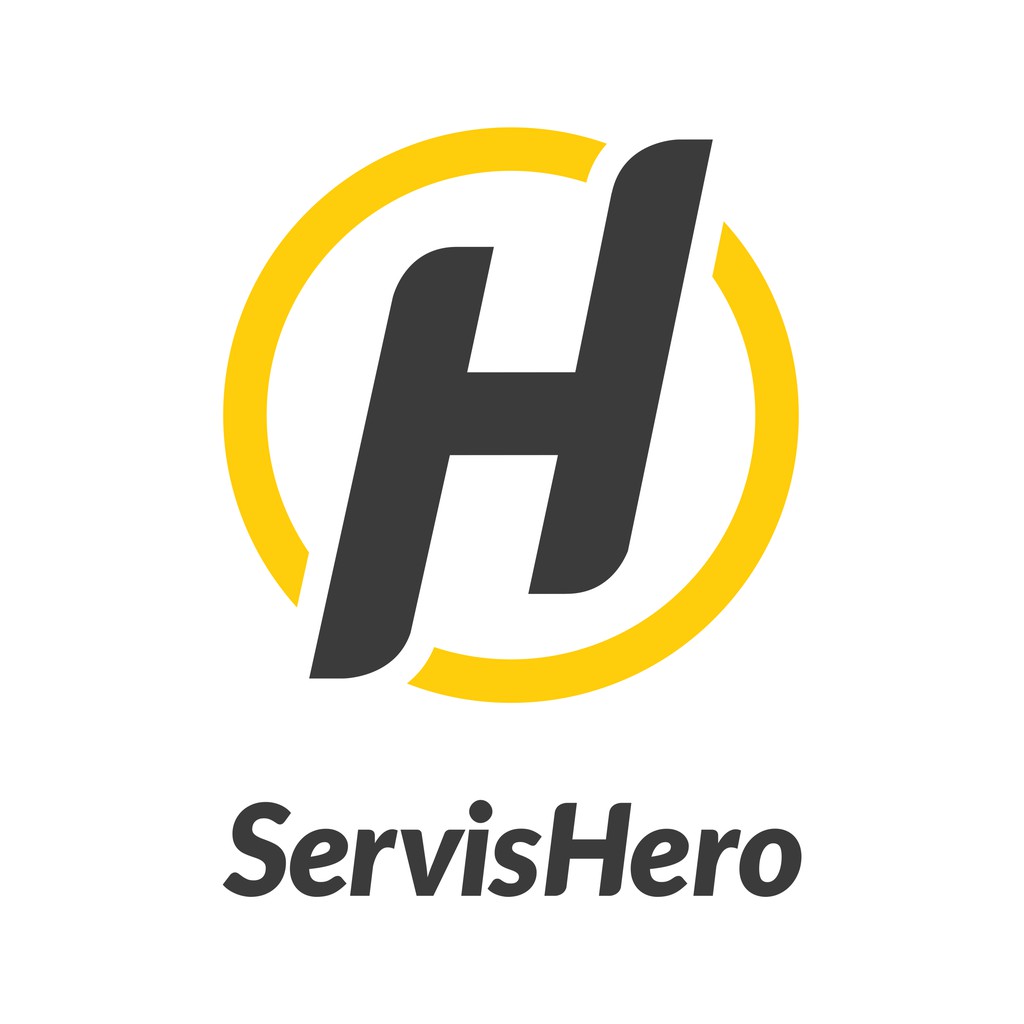
ServisHero is a budding startup based in Kuala Lumpur, Malaysia that links workers such as cleaners and contractors with customers. I interned with them as a software engineer when they were only two years old and when I started there, they had just partnered with Allianz to offer discounts to Allianz customers. I was responsible for implementing the partner webpage that would validate ServisHero customers' Allianz credentials. Upon success, this page would generate a promocode for the customer to use.
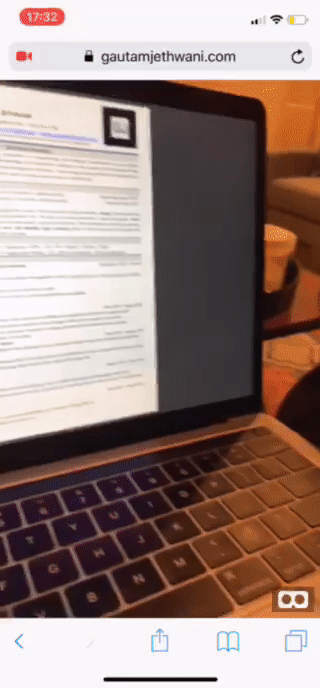
I've had a growing interest in augmented reality which I've applied to my resume as a passion project. I experimented with the AR.js library and was able to make a basketball bounce on my resume. If you would like to see this in action, click this link and point your device's camera at my resume which can be found here.
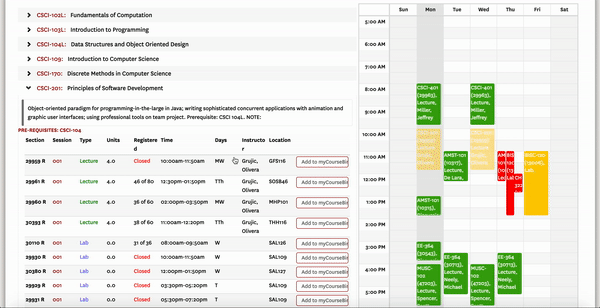
USC's class registration system has flaws that I address in this Chrome extension. Usually, students have to open their calendar in one tab and the class catalog in the other. They then have to add the class and refresh the page to see how the class would fit in their schedule. I wrote a Chrome extension that places the calendar side-by-side with the course catalog. It also gives students the ability to hover over and click on classes to visualize them in their calendar. This means that students only need to open one tab when registering for classes.
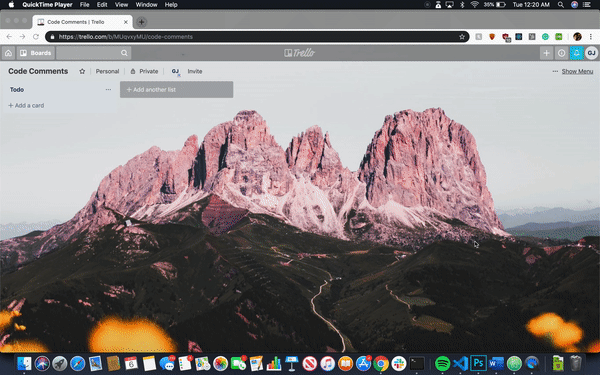
While writing some code, I got sick and tired of 'TODO' comments that I could not keep track of. I thought Trello would be a good solution but I did not want to keep switching between my IDE and Trello. The result: trello-updater. trello-updater is a package that I developed for the popular IDE Atom that essentially is an interface for the Trello API. If you follow a certain format for your code comment where you dictate what the board name, list name and description of the Trello card will be, you can simply highlight the comment and, with the click of a button, send the card to Trello without so much as opening a browser. The card will be there complete with line number.
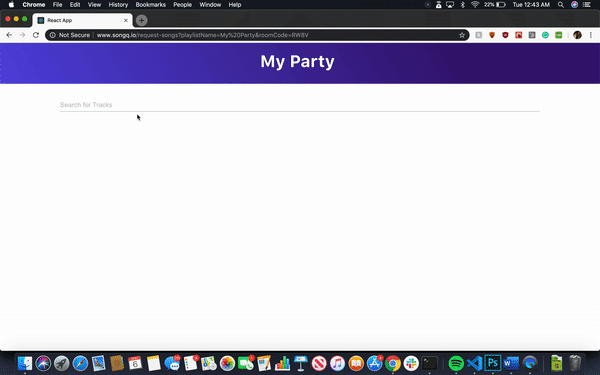
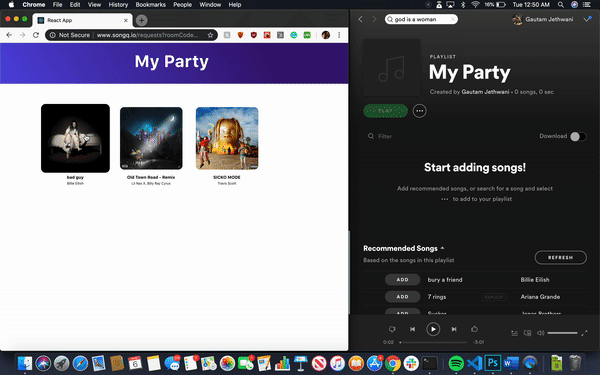
SongQ is a wep application I built that makes requesting music at any event much easier. A host of an event can go to www.songq.io and create a playlist on the platform that links to any Spotify playlist they have the right to edit. There is also a 4 digit alphanumeric code attached to each playlist that hosts can pass onto their guests. Guests can then use this code to request songs. They can search for any track that's on Spotify and request it with a single click. The host can then choose to accept or deny these requests and upon acceptance, the track is added to the Spotify playlist. The above gif shows songs being requested and the one below it shows songs being accepted and inserted into the playlist. The code for the API can be found here and the code for the UI can be found here
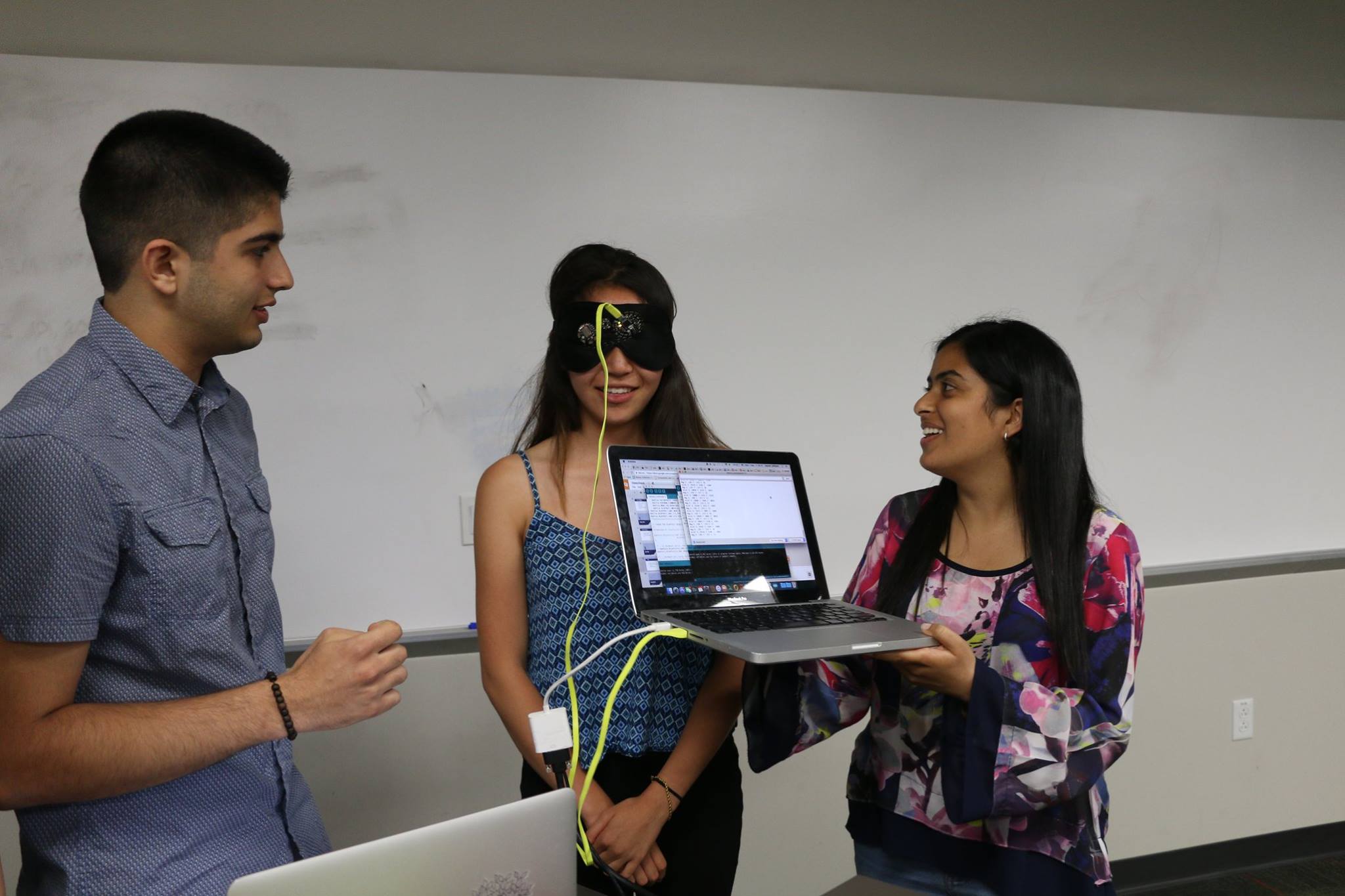
I was part of a team that built a sleepmask that could detect your motion and acted as a smart alarm clock. You could set a time and it would see when you were in your lightest point of sleep within half an hour of that time using an accelerometer. It would then use LEDs to give you a peacful rising experience. You can see the project details here.
Journal
Future Generation Computer Systems
Title
Developing Accurate and Scalable Simulators of Production Workflow Management Systems with WRENCH
Corresponding Author
Rafael Ferreira da Silva
Co-Authors
Henri Casanova, Ryan Tanaka, Suraj Pandey, Gautam Jethwani, Spencer Albrecht, James Oeth, Frédéric Suter
You can access the paper here
If my resume doesn't load below, you can access it here




